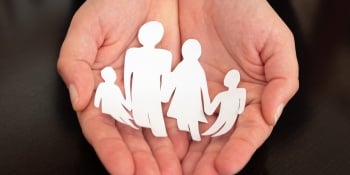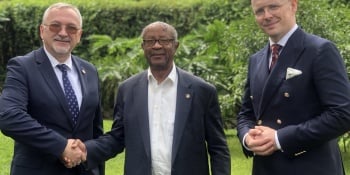Published: 02.10.2023

- At the recent SDG Summit, Hungarian President Katalin Novák highlighted the demographic crisis and reiterated the right of parents to raise their children according to their own beliefs
- The event was part of the UN summit in New York.
- During the meeting, world leaders adopted a "Political Declaration," pledging to achieve over the next seven years, 17 Sustainable Development Goals and 169 related sub-goals that form the essential core of the 2030 Agenda.
- The Declaration is aimed at implementing human rights and so-called gender equality, as well as promoting "sexual and reproductive rights."
A meeting of country leaders took place in New York in connection with the SDG 2023 summit, at the end of which countries adopted a "Political Declaration" reaffirming their commitment to the Sustainable Development Goals. The declaration is intended to commit countries to the full implementation of Agenda 2030 and the Sustainable Development Goals (SDGs). The summit was a response to the impact of the numerous and interrelated crises the world is facing. The underpinnings of Agenda 2030 are the Rio Conference, held in 2012, and the 2019 Global Sustainability Report, titled "The future is Now: Science for Achieving Sustainable Development."
The summit was divided into six sections. World leaders adopted a "Political Declaration," pledging to achieve, over the next seven years, the 17 Sustainable Development Goals and 169 related sub-goals that form the essential core of the 2030 Agenda. They take into account the economic, social and environmental dimensions of sustainable development.
The motive for action is to be a shared commitment to eradicating poverty, hunger and inequality, both within and between countries, and building peaceful societies. Sustainable development is to focus on overcoming the weaknesses and problems of the current world.
The main issues discussed at the summit were energy transition, renewable energy, access to education, new technologies, facilitating the digitization of the global economy, digitizing the world, implementing urbanization regulations, and adopting a new financial architecture.
One of the top priorities of the Declaration issued at the end of the summit is, expressed in paragraph 15, the demand for consistent implementation of human rights and "gender equality," as well as the promotion of so-called sexual and reproductive rights, which the UN believes should be given greater consideration in the implementation of the various goals of the Agenda.
The summit summary document also reaffirmed the Addis Ababa Action Agenda, which is an integral part of Agenda 2030, dedicated to financing and sustainable development issues, focusing forces and actions on climate change. The declaration is written in the spirit of resolutions and commitments, and is intended as a kind of transition from discussion to action - so that the goals the UN sets for itself will be realized in accordance with Agenda 2030.
A number of heads of state and world leaders spoke over the two days. One of them was Hungarian President Katalin Novák, who stressed the essence of peace, the role of the UN and pointed out the steps that the countries that came to the summit must take. She also noted what a great problem the demographic decline is becoming for the world, and the importance of the family, its rights and freedom. She defined clearly what is the most important task of countries when it comes to parents.
"We protect the freedom of parents. We firmly believe that the right to raise children belongs not to the state, NGOs, the media or the knowledge industry, but to the parents." - Katalin Novák stressed.
The Hungarian president also pointed out the right focus for the world to grapple with.
"Elon Musk may be right when he says that the demographic decline is a more serious problem than the climate crisis. Little attention is paid to the real and irreversible change in the world. If there are no children, there will be no future. What is the point of taking care of the Earth if we don't have children and grandchildren to pass it on to? (...). In Europe and in many of your countries, the demographic winter has turned into an ice age," the politician noted.
- The President's speech was an interesting voice at the 78th UN session. The clear and decisive approach to the most important issues presented by her delineates a new outlook on real problems. The speech delivered at the summit is consistent with what the Hungarian president pointed out at the 77th UN session," pointed out Dr. Przemysław Kulawinski of the Ordo Iuris Center for International Law.
"It is not at all obvious that today, in times of war, energy and food crises, organizations set up to avoid war and preserve peace focus on ideological indoctrination. This is not what is needed today. Instead, we need to regain the ability to distinguish between the essential and the irrelevant, the important and the unimportant, reality and fiction." - said the Hungarian president last year.
The challenges currently facing the country's leaders are significant, and time is short. A Future Summit will be held in September 2024, with the ultimate goal of concluding a Future Pact.

29.05.2025
• Proceedings in the case of the German Mori family have concluded at the District Court in Gdańsk.

23.05.2025
• The Ordo Iuris Institute co-organized the 2nd Pan-African Conference on Family Values in Nairobi and was invited to take part in the Kenyan government’s celebration of International Day of Families.

14.05.2025
• In Nairobi, the 2nd Pan-African Conference on Family Values is taking place with the participation of representatives from Ordo Iuris.

09.05.2025
• Representatives of the Ordo Iuris Institute will participate in the Pan-African Conference on Family Values, which will begin on May 12 in Nairobi, the capital of Kenya. Ordo Iuris is a partner of the event.